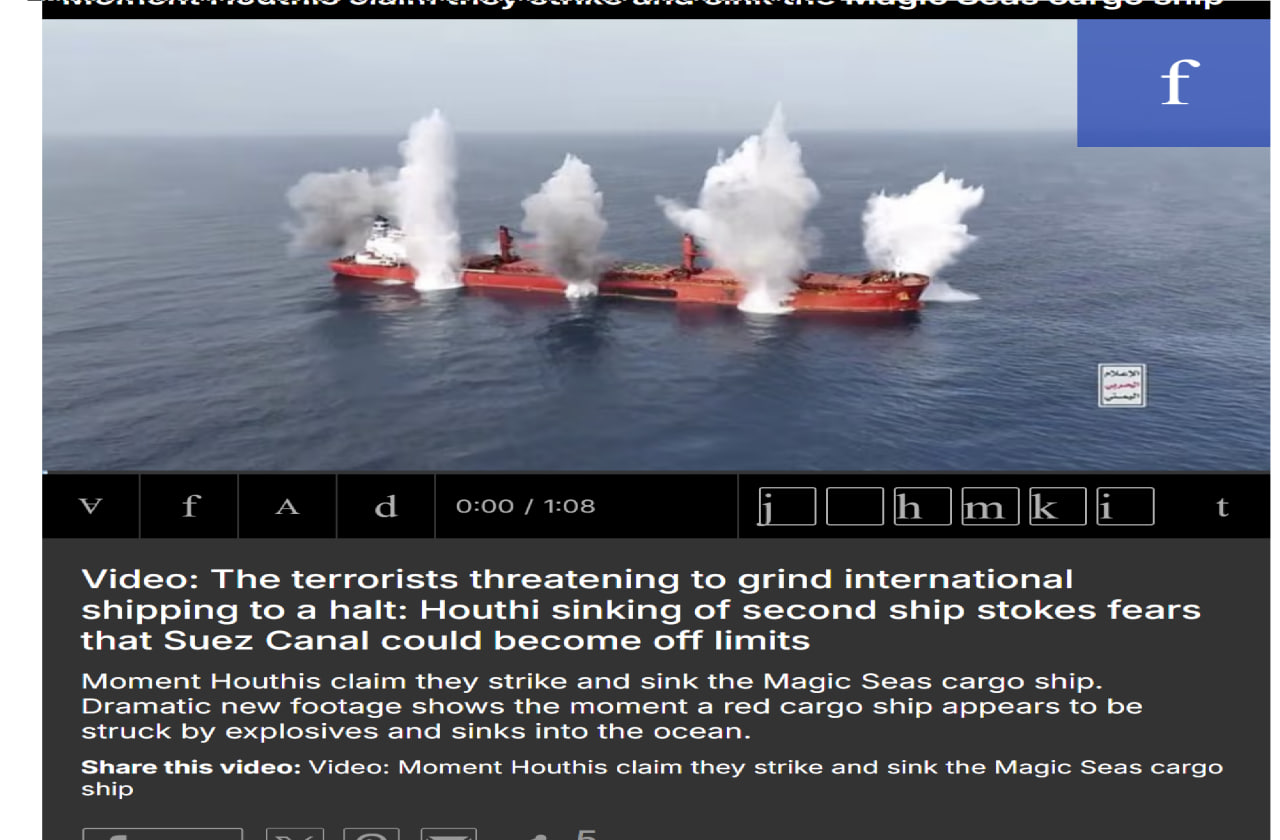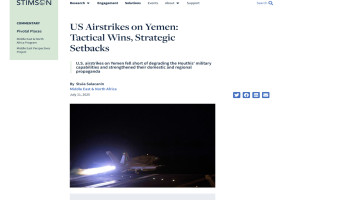The British newspaper Daily Mail has confirmed that the Yemeni Armed Forces have delivered a major strategic blow to American and Israeli naval power in the Red Sea, through complex, high-impact operations that exposed the collapse of Western deterrence and the fragility of their maritime defense systems.
In a detailed report, the newspaper described the latest Yemeni attacks on Israeli-linked commercial vessels as a decisive turning point in the regional conflict. It stated that these operations demonstrated Yemen’s ability to cripple hostile shipping routes at will, using advanced tactics and limited resources.
The report emphasized that the coordinated strikes—carried out with guided missiles, explosive-laden drones, and unmanned boats—lasted more than 48 hours, during which U.S., British, and Israeli forces failed to respond. According to the newspaper, this reflects a complete intelligence and operational failure on the part of the Western coalition.
Daily Mail further noted that, since the start of its military campaign, the United States has dropped more than 2,000 munitions on nearly 1,000 targets across Yemen, yet has failed to halt the Yemeni naval offensive, which continues to expand in scope, precision, and effectiveness.
Military experts cited in the report observed that Yemeni forces now possess advanced capabilities in helicopter-borne assaults, capable of outmaneuvering Western-trained security teams aboard commercial vessels—posing a direct and unprecedented threat to vital maritime corridors.
The report stressed that “Ansar Allah, once considered the least capable component of the Axis of Resistance, has now taken the lead,” delivering precise, coordinated strikes that have stunned Washington and Tel Aviv and shattered the myth of Western military superiority.
The newspaper concluded by affirming that the Red Sea has become a battlefield controlled entirely by Sana’a, where Western naval alliances have retreated in disarray. The Yemeni Armed Forces now dictate the tempo of the conflict, redrawing the balance of power in the region and ending the illusion of uncontested American control over international waterways.







